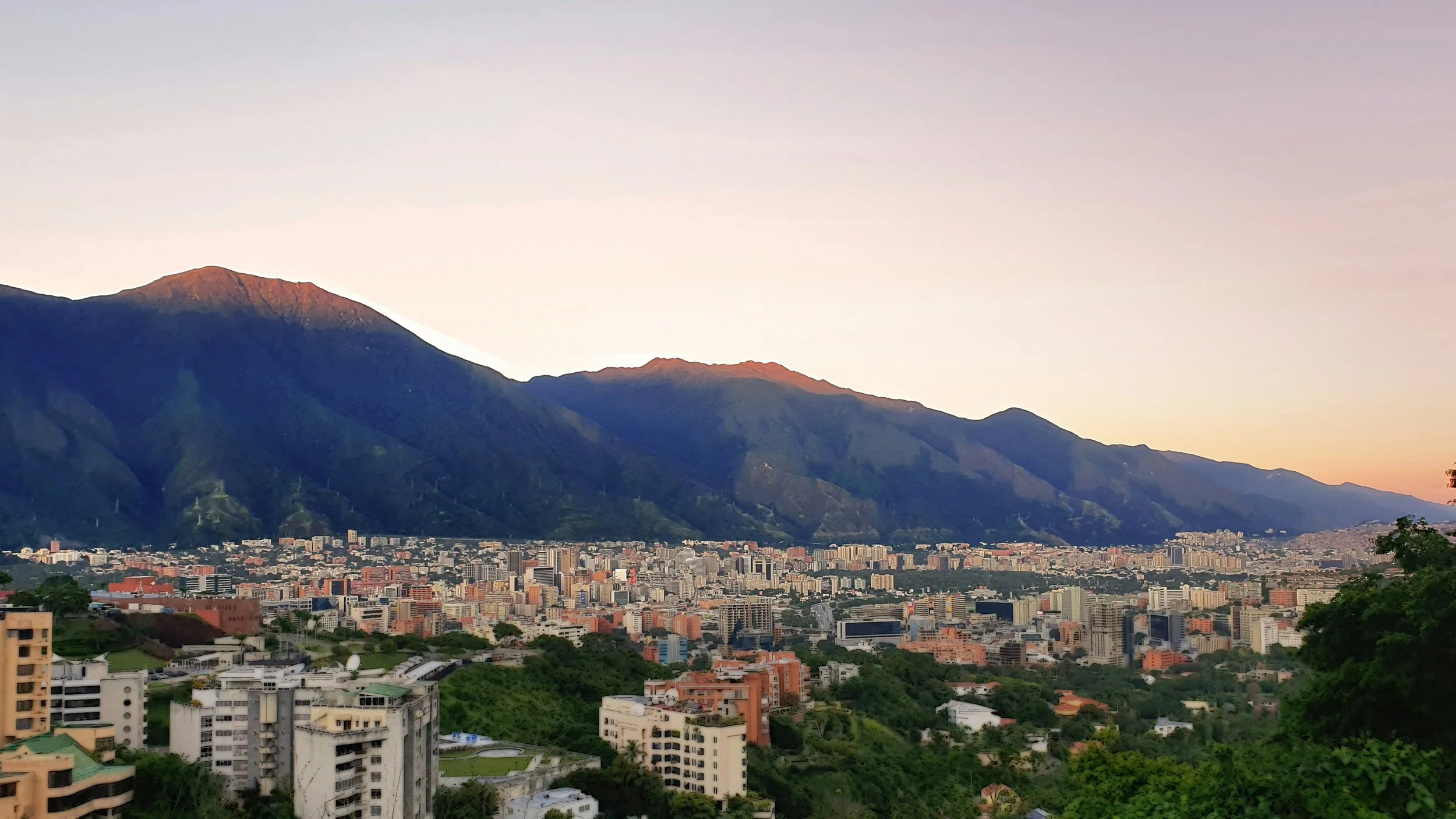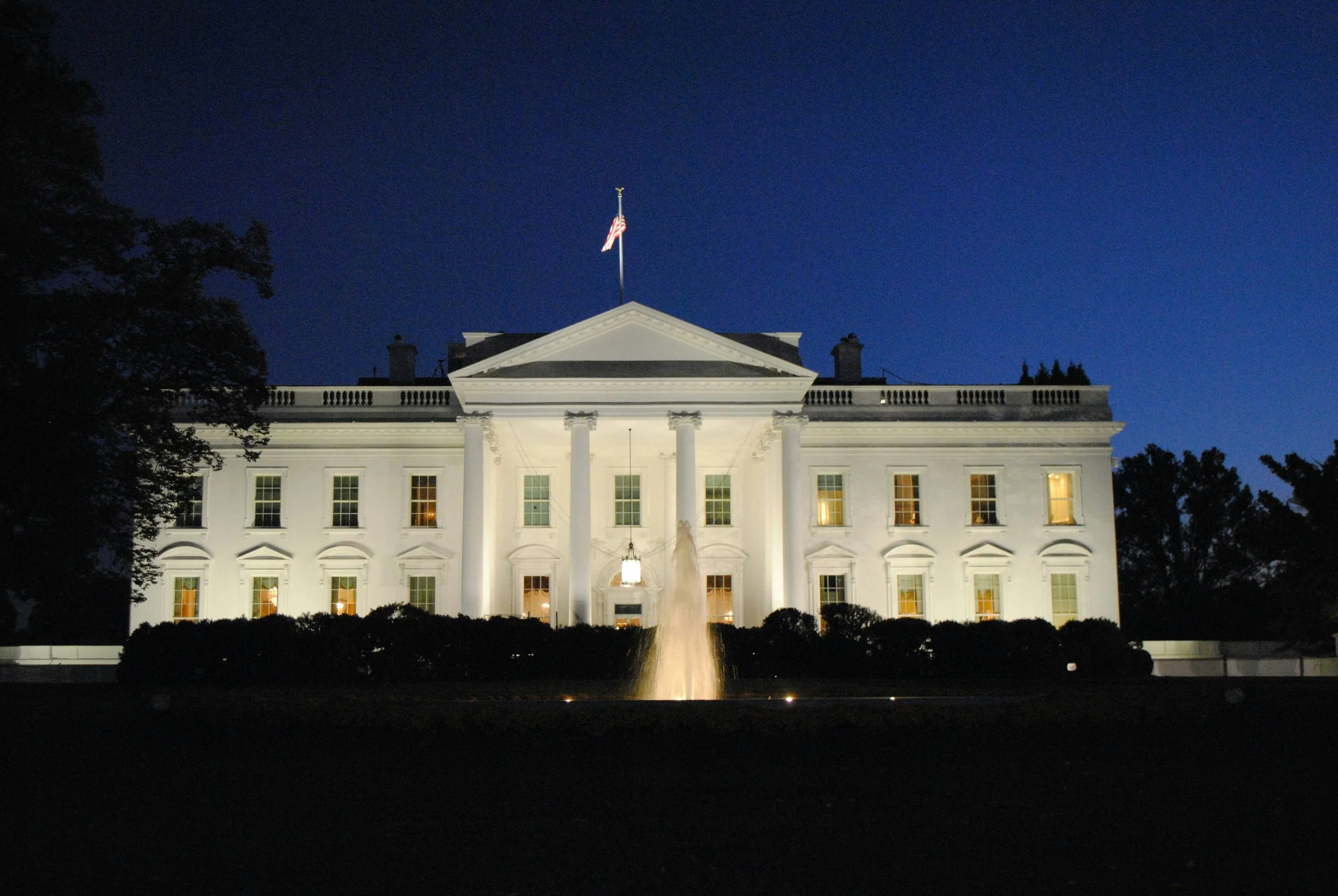
All Content
Welcome to the Institute for the Study of States of Exception (ISSE) main content page, a single source for all posts from the Institute, including commentary on global events, book reviews, academic literature, links to our podcasts, and additional resources. Check back regularly for more content from us.
“Sovereign is he who decides the exception.”
— Carl Schmitt (Political Theology: Four Chapters on the Concept of Sovereignty, 1922)
The ‘Ratchet Effect’: Presidents, Emergency Powers, and the Crisis of Institutional Faith - The Miller Center
An accelerating trend toward unilateral executive action has characterized the post-Cold War American presidency. Confronted with intense partisan polarization and the resulting legislative stalemate, presidents have increasingly resorted to the tools of direct authority—executive orders, memoranda, and proclamations—to bypass a gridlocked Congress and enact their policy agendas.
The most potent tool is the declaration of a national emergency. This action unlocks a litany of latent statutory powers, allowing a president to redirect funds, deploy military personnel, and regulate sectors of the economy with minimal immediate oversight. This practice represents a fundamental shift in the locus of policymaking, moving it from the deliberative, legislative sphere to the decisive, executive one.
The expanding use of presidential emergency powers is an effect of the secular decline of public faith in the nation’s core democratic institutions. Decades of data indicate that citizens are losing confidence in our constitutional system of checks and balances to address pressing problems. This loss of confidence suggests that citizens become more amenable to leaders who promise to cut through procedural constraints, thereby rewarding unilateralism and further eroding the norms of deliberative democracy. It creates a self-perpetuating cycle of distrust and overreach, in which each unilateral act delegitimizes the bypassed institutions, reinforcing public cynicism and increasing the political demand for executive action.
The War on “Drug Boats”: How Lethal Maritime Strikes Push the Boundaries of International Law - Global Policy Journal
Neither the declaration of war nor the use of emergency powers suspends fundamental human rights and humanitarian norms. Even in war, the principle of distinction under international humanitarian law, notably the Geneva Conventions, protects civilians. A drug boat, however illicit its cargo, is not a military target. Those on board remain civilians especially if there is no clear way of identifying them as combatants – or in this case, suspected gang members. From a human rights perspective, the International Covenant on Civil and Political Rights is equally clear. The right to life, protected under international law, cannot be suspended even under a declared national security emergency. Emergencies do not justify taking a life on the mere assumption of criminality. This is both arbitrary and unlawful. The same applies to due process. Every individual has the right to a fair trial before being deprived of his liberty, and even more so, his life. Drug trafficking is not a capital crime that would warrant a death sentence, and even if it were, punishment still requires trial and conviction. The bombings, therefore, would be extrajudicial punishment.
Creating Zones of Lawlessness: Trump, Venezuela, and the Piecemeal Construction of an Authoritarian State - Western States Legal Foundation
The United States Government has deployed a large military task force to the waters in the Caribbean Sea, while making a variety of threats against the government of Venezuela and against drug traffickers it alleges are operating in that country and elsewhere. It is also conducting a campaign of killings against alleged drug traffickers, using drones and aircraft to attack and destroy small boats without warning far from U.S. shores, in almost every instance leaving no survivors.
The first part of this essay describes the Trump administration’s threats of military force against Venezuela and its killings of alleged drug traffickers in small boats in the Caribbean, providing an analysis of relevant law. The concluding section, “States of Emergency: The Wars Abroad and the Wars at Home,” examines how the administration has combined narratives about the drug trade, terrorism, and immigration to assemble a legal and ideological toolbox for the construction of an authoritarian state.
What’s at Stake in the Supreme Court Tariffs Case - Brennan Center for Justice
On November 5, the Supreme Court heard oral argument in a case testing the limits of presidential emergency powers. At issue is whether a president may use the International Emergency Economic Powers Act (IEEPA) to impose sweeping tariffs on imports from countries around the world.
The stakes of this case reach far beyond trade policy. The Court’s decision could shape whether the use of emergency powers to bypass Congress becomes a tool of routine governance, with profound implications for the constitutional separation of powers and limits on presidential authority.
The case arose after President Trump declared three national emergencies to impose tariffs on Canada, Mexico, and China, followed by a fourth national emergency to impose a 10 percent global tariff plus “reciprocal” tariffs of up to 50 percent on selected countries and corporations. He justified each of these measures as a response to an “unusual and extraordinary threat” to U.S. national security, foreign policy, and/or the economy.
A number of corporations and states responded by filing suit in federal court. The Brennan Center has filed friend-of-the-court briefs in several of these cases, arguing that longstanding trade imbalances do not constitute an emergency or an “unusual and extraordinary threat” and that IEEPA does not authorize the president to impose tariffs. The Court will now determine whether the statute gives presidents a “tariff pen” that can bypass Congress entirely.
Ecuador News Round-Up No. 24: Noboa Cracks Down on Protests While Pushing to Rewrite the Constitution - Center for Economic and Policy Research
Since late 2024, Ecuador has been governed under recurring states of exception declared by President Daniel Noboa, reflecting a sustained reliance on emergency powers to confront what authorities describe as grave internal disturbance. These measures (triggered by escalating gang violence, organized crime, and threats to public security) have covered multiple provinces and key urban areas, and have been repeatedly renewed for fixed periods (often 30 or 60 days). Under Ecuador’s constitutional framework, states of exception permit the temporary suspension of certain fundamental rights, expanded police and military deployment, curfews, and enhanced search and seizure authorities. While framed as necessary to restore order amid an unprecedented security crisis, the persistence and normalization of emergency governance in Ecuador raise significant questions about proportionality, democratic oversight, and the long-term implications for rule of law.
This November 2025 report from the Center for Economic and Policy Research discusses recent developments beginning in mid-September 2025 when Noboa moved to eliminate Ecuador’s long-standing diesel subsidies, a politically volatile decision that reignited protests and a national strike reminiscent of earlier Indigenous-led uprisings that had nearly toppled previous governments. Although the demonstrations were ultimately more limited in scope, the government’s response involved violent repression, resulting in at least three protester deaths, hundreds of arrests and injuries, and widespread allegations of human rights abuses condemned by international organizations.
Noboa next pushed a referendum (rejected by Ecuadorians during a November 16th vote taken subsequent to this report’s publication) featuring controversial proposals to convene a constituent assembly to rewrite the constitution and to lift the ban on foreign military bases, which critics warned would undermine constitutional rights, sovereignty, and human rights, amid an uneven campaign heavily favoring the government.
Concurrently, Noboa’s militarized security strategy has failed to curb violence, with homicide rates projected to reach historic highs in 2025, with documented cases of enforced disappearance, even as the United States continues to support the administration’s security agenda.
Normalizing Emergencies - Yale Journal of Regulation
In the aftermath of Donald Trump’s return to the White House, a flurry of executive orders and memoranda has once again brought the concept of “national emergency” to the forefront of American governance. Within hours of taking office, the administration declared a “national emergency at the southern border,” villainized immigration, and raised the specter of a “border emergency” vaguely connected with a threat of “foreign terrorist organizations.” At first glance, these actions might resemble a continuation of tactics from Trump’s previous term, especially his 2019 declaration of a national emergency at the border. On closer inspection, however, the administration’s actions stretch well beyond traditional emergency contexts of national security or foreign policy, seeping into what were once ordinary spheres of domestic governance. Two separate executive orders, for example, both announce the existence of a “national energy emergency” and instruct relevant agencies to address the “emergency.” A separately presidential memorandum directed federal agencies to “deliver emergency price relief” by taking actions to reduce costs of housing, food, and fuel.
Human Rights Watch: Protected No More - Uyghurs in Türkiye
According to Human Rights Watch, Türkiye’s treatment of Uyghurs has increasingly assumed the character of an administrative state of exception, where broad and opaque “public security” powers override established legal protections. Turkish authorities arbitrarily assign “restriction codes”—often without evidence—to label Uyghurs as security threats, triggering detention, denial of residency or citizenship, and potential deportation. These codes function as emergency-style mechanisms that bypass due process, enabling detention in deportation centers where Uyghurs face pressure to sign “voluntary return” forms and, in some cases, mistreatment. Courts routinely uphold deportation orders on the basis of these codes alone and have discounted the prohibition against refoulement, despite clear evidence that Uyghurs face persecution and torture if returned to China. The reliance on foreign intelligence, including Chinese-provided lists branding peaceful activists as “terrorists,” further entrenches a security paradigm that suspends normal legal standards and undermines long-standing protections for Uyghurs. Overall, the report shows how Türkiye’s exceptional security authorities have created pervasive uncertainty for Uyghurs, eroded their legal status, and exposed them to serious risks of refoulement.
What Trump can and can’t do with the Insurrection Act - Demystifying the most ominous law in America
In the United States, the military is not used for domestic law enforcement. That’s a bedrock civic principle, one that separates our democracy from dictatorships around the world. Our troops serve to protect the American people from harm coming from abroad, not to police people at home.
Legally speaking, though, there is one glaring exception: The Insurrection Act.
One Week of Trump’s DC Takeover Attempt: An analysis of the president’s use of military, police, and security services in the nation’s capital - Just Security
A week ago, President Donald Trump and members of his cabinet announced a takeover of law enforcement functions in Washington, D.C. using three tools: deployment of elements of the D.C. National Guard (and National Guard troops from several cooperating states as well), invocation of a statutory emergency power to requisition the services of the city’s Metropolitan Police Department, and a surge of federal law enforcement to the city’s streets, including Department of Homeland Security, Federal Bureau of Investigation, and other federal agents. Over the past week, 800 D.C. National Guardsmen have been mobilized for operations in the city, with hundreds more state National Guardsmen on their way, and 500 newly deployed immigration and other federal agents are patrolling the streets or have set up checkpoints. At the same time, the district and the White House have engaged in a power struggle over control of the city’s police department…
Presidential emergency powers, explained - Protect Democracy
National emergencies are critical tools for addressing sudden and unforeseen events — often situations that require an immediate, decisive response to address. In our constitutional system, a national emergency declaration allows the president to temporarily use certain authorities that Congress has previously approved. Congress delegated this authority to the president because it sometimes cannot act quickly enough to respond to certain kinds of situations, such as natural disasters and public health emergencies. Upon declaring a national emergency, over 130 special authorities — such as the authority to shut down communications facilities or draw down equipment from national defense stockpiles— are immediately unlocked that enable a president to intervene in ways that are unavailable to them outside of an emergency declaration.
Emergency Powers Project - Brennan Center for Justice
Emergency powers have existed in countries around the world for centuries. Their purpose is simple: to temporarily enhance executive power during unexpected crises that are moving too fast for Congress to respond. The Brennan Center’s original research cataloged 123 statutory authorities that become available to the president when he declares a national emergency. Many are measured and sensible, but others seem like the stuff of authoritarian regimes: giving the president the power to take over domestic communications, seize Americans’ bank accounts, and deploy U.S. troops to any foreign country. Given how broad these powers are, it is critical to have adequate safeguards in place to prevent abuse…
Constraining States of Exception - Center for Strategic and International Studies
“Plan Bukele” Goes Global: The Western Hemisphere is split over the extreme security policies of Salvadoran president Nayib Bukele. To his supporters, Bukele’s efforts at curbing violent crime in what was once one of the most notorious hotbeds of gang activity have been nothing short of herculean. To his detractors, the self-proclaimed “coolest dictator in the world” has exploited public security efforts to establish an ironclad grip on El Salvador’s political and civic space, with corrosive effects on the country’s democracy…
Guide to Declarations of Martial Law in the United States - Brennan Center for Justice
Martial law has long been mired in confusion in the United States, but that has not always stopped state and federal officials from declaring it. Indeed, the Brennan Center has identified 68 declarations of martial law across U.S. history. Our research into these events is presented in the appendix below. It accompanies our report on martial law, which delves into the history of the concept and the legal principles that govern it.
We have organized the appendix by category based on the type of event that precipitated martial law. For each entry, we have included key information about the declaration such as the date, duration, location, related litigation, and who issued it. Unfortunately, the historical use of martial law in the United States is poorly documented and under-studied. For this reason, some of the entries in the appendix are incomplete. We have also chosen to exclude any event where there is any doubt as to whether martial law was declared…
The Supreme Court’s Contribution to the Confrontation Over Emergency Powers - Lawfare
Three significant questions behind President Trump’s declaration of a national emergency during his first term to build a border wall have a single, surprising answer: Why did Congress in the National Emergencies Act (NEA) of 1976 delegate such broad and vague power to the president to declare national emergencies? Why wasn’t Congress more specific in defining the circumstances that constitute a national emergency? And why are the courts now going to have the final word in determining whether the president has properly invoked or abused the power the NEA gives him?
The answer to all these questions lies in a 1983 Supreme Court decision, INS v. Chadha. That decision, rightly or wrongly, decimated the policy scheme Congress had created for overseeing the president’s declaration of emergency powers—and nearly 200 other federal statutes in which Congress since the 1930s had created a similar scheme…
A Guide to Emergency Powers and their Use - Brennan Center for Justice
In February 2019, President Donald Trump declared a national emergency to secure funding that Congress had expressly denied for the construction of a wall along the southern border. Before that declaration, most Americans were unaware that a vast set of laws gives the president greatly enhanced powers during emergencies. The Brennan Center, building on previous search, has (as of July 2025) identified 137 statutory powers that may become available to the president when he declares a national emergency, including the power President Trump invoked to help build the wall (10 U.S.C. 2808 (a)). An additional 13 statutory powers become available when a national emergency is declared by Congress…
Unprecedented use of “emergency” power - Brennan Center for Justice
Not even a year into his second term, President Trump has (as of 11 August 2025) declared 11 national emergencies, exceeding every president’s single-term total except for his own previous record of 13 national emergency declarations.
An embedded chart in this report depicts National emergencies declared annually by U.S. Presidents, from 1979 to 2025 (as of 11 August 2025)…
















